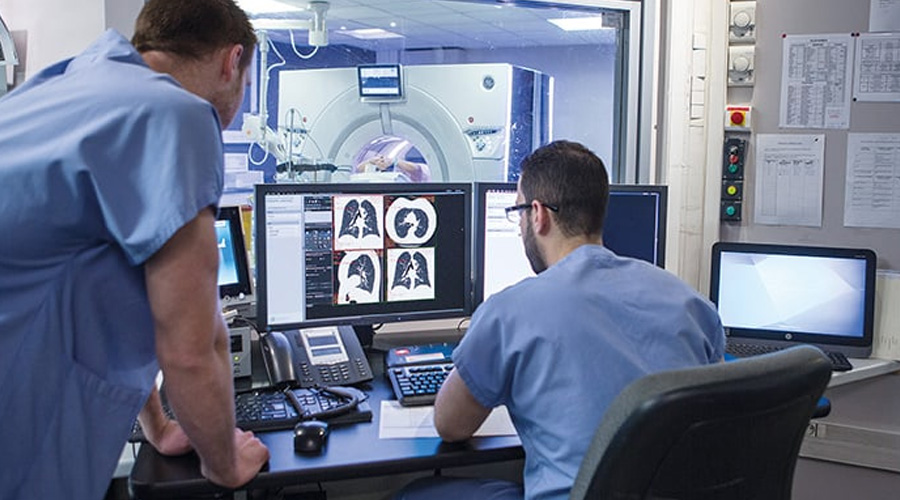
AI-Powered Breakthroughs in Medical Diagnosis and Treatment: Transforming HealthcareAI-Powered Breakthroughs in Medical Diagnosis and Treatment: Transforming Healthcare Artificial intelligence (AI) is revolutionizing the field of medicine, empowering healthcare professionals with cutting-edge tools to diagnose and treat diseases with unprecedented precision and efficiency. Here are some transformative breakthroughs made possible by AI: Enhanced Diagnostic Precision: * AI algorithms can analyze medical images (e.g., X-rays, MRIs) with remarkable accuracy, identifying subtle abnormalities and patterns that may escape the naked eye. * Deep learning models can diagnose a wide range of diseases, including cancer, diabetic retinopathy, and Alzheimer’s disease, with high sensitivity and specificity. * AI-powered diagnostic systems can provide early detection and timely interventions, significantly improving patient outcomes. Precision Treatment Planning: * AI can process vast amounts of patient data, including genomics, clinical history, and environmental factors, to determine the most appropriate treatment plans. * Machine learning algorithms can predict the response to specific therapies, helping physicians personalize treatments and avoid unnecessary side effects. * AI-driven decision support tools guide physicians in selecting the optimal medication combinations and dosages, maximizing therapeutic efficacy. Early Disease Detection: * AI-powered screening systems can detect early signs of disease through advanced data analysis. * Natural language processing (NLP) algorithms can analyze electronic health records (EHRs) to identify patients at high risk of developing specific conditions. * AI-based predictive models can forecast the onset of diseases such as diabetes or cardiovascular events, allowing for targeted prevention strategies. Drug Discovery and Development: * AI is accelerating drug discovery by identifying potential drug candidates and predicting their efficacy and safety. * Deep learning models can analyze molecular structures and interactions to design new drugs with improved characteristics. * AI algorithms can optimize clinical trial designs and predict patient enrollment rates, streamlining drug development processes. Remote Patient Monitoring: * AI-powered wearables and sensors can collect real-time physiological data from patients remotely. * AI algorithms analyze this data to detect early signs of deterioration or treatment complications. * Remote monitoring empowers patients with self-management tools and reduces the need for in-person appointments, enhancing patient convenience and continuity of care. Empowered Physicians: * AI serves as a powerful assistant to physicians, providing them with evidence-based recommendations and decision support. * AI-powered systems can sift through vast amounts of medical literature, keeping physicians abreast of the latest research and best practices. * AI can free up physicians’ time, allowing them to focus on providing personalized care and building stronger patient relationships. Conclusion: AI-powered breakthroughs in medical diagnosis and treatment are transforming healthcare by enhancing diagnostic precision, personalizing treatments, detecting diseases early, accelerating drug discovery, enabling remote monitoring, and empowering physicians. As AI continues to evolve, even more transformative advancements can be expected, leading to improved patient outcomes, cost savings, and a brighter future for the healthcare industry.
Posted inNews